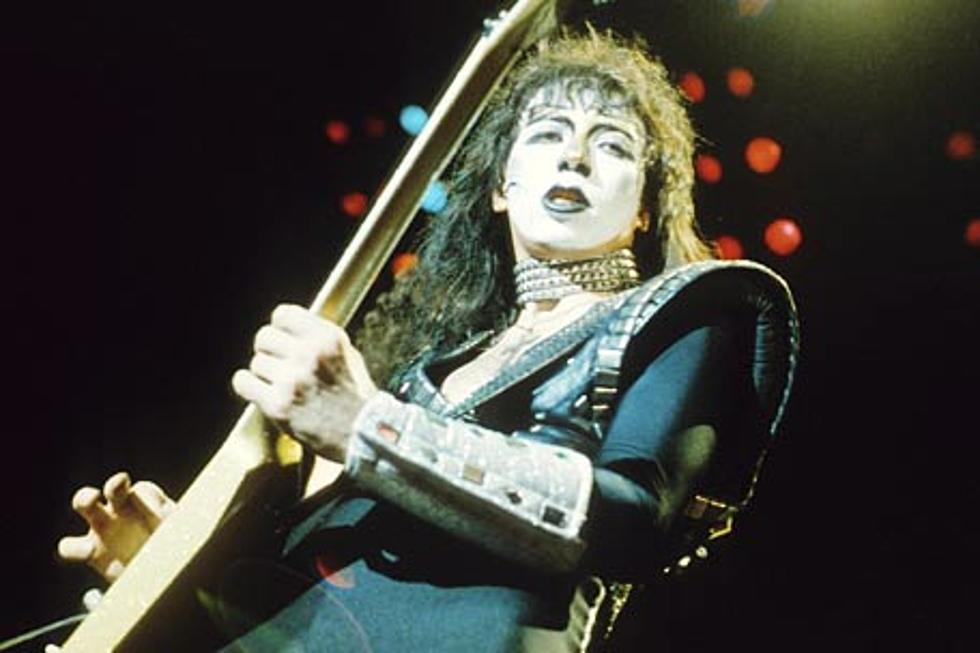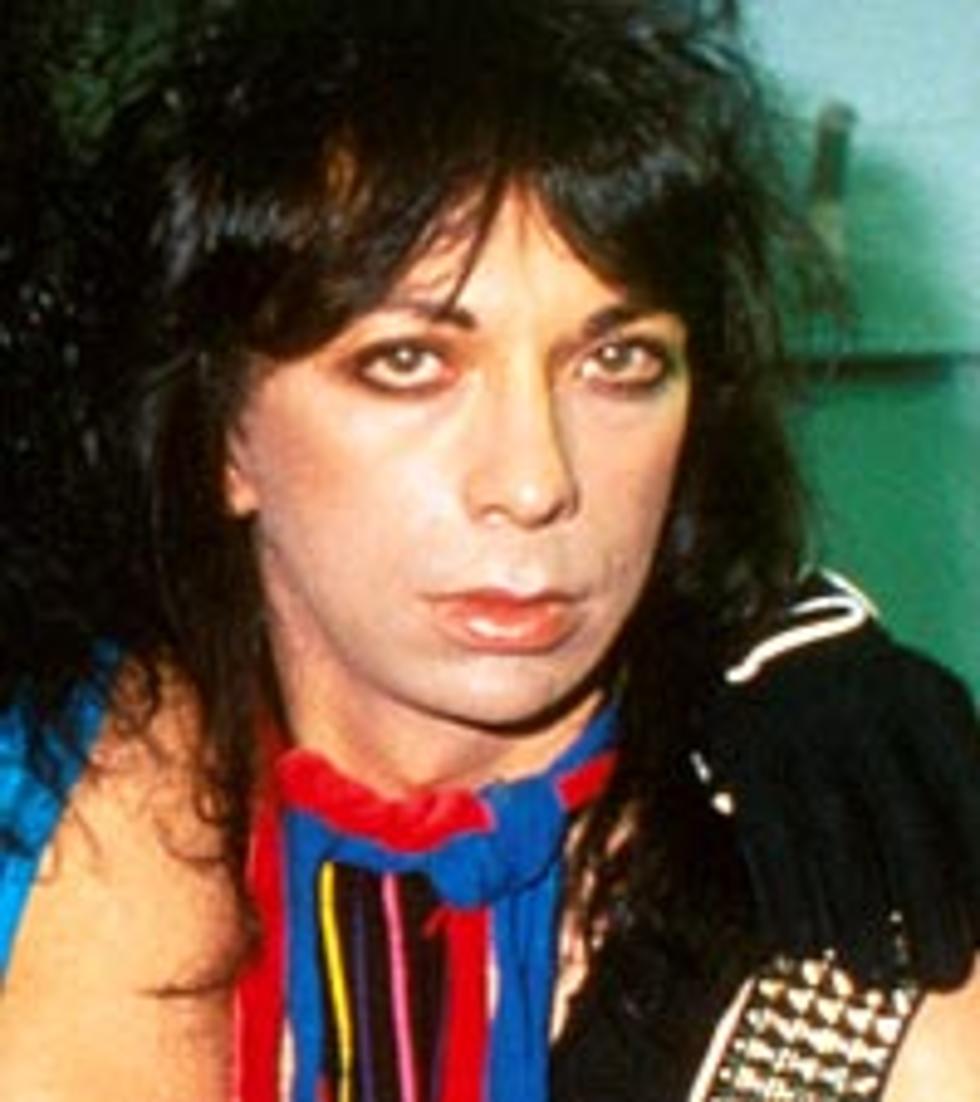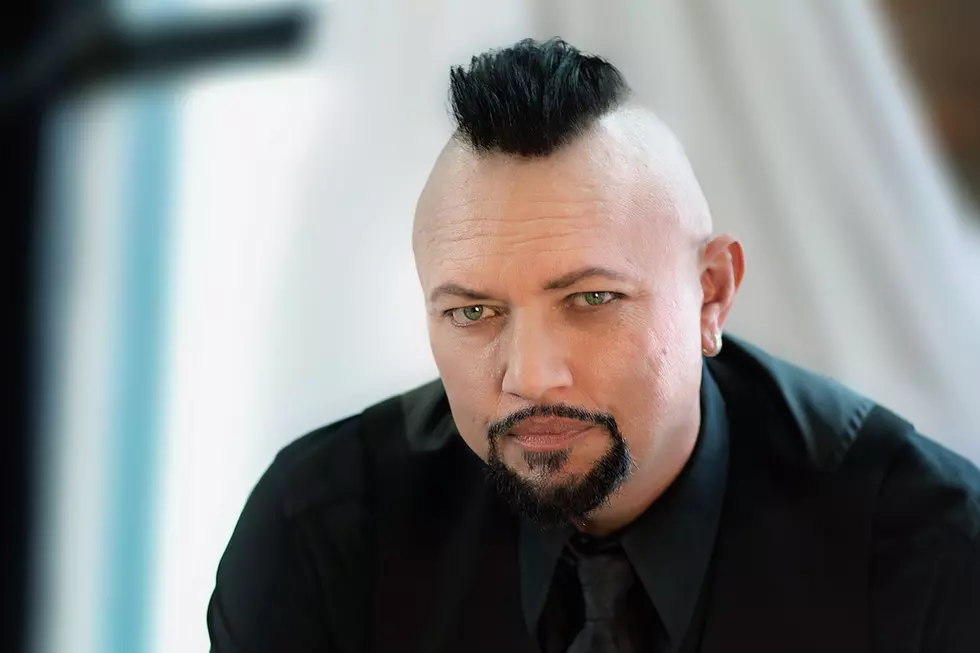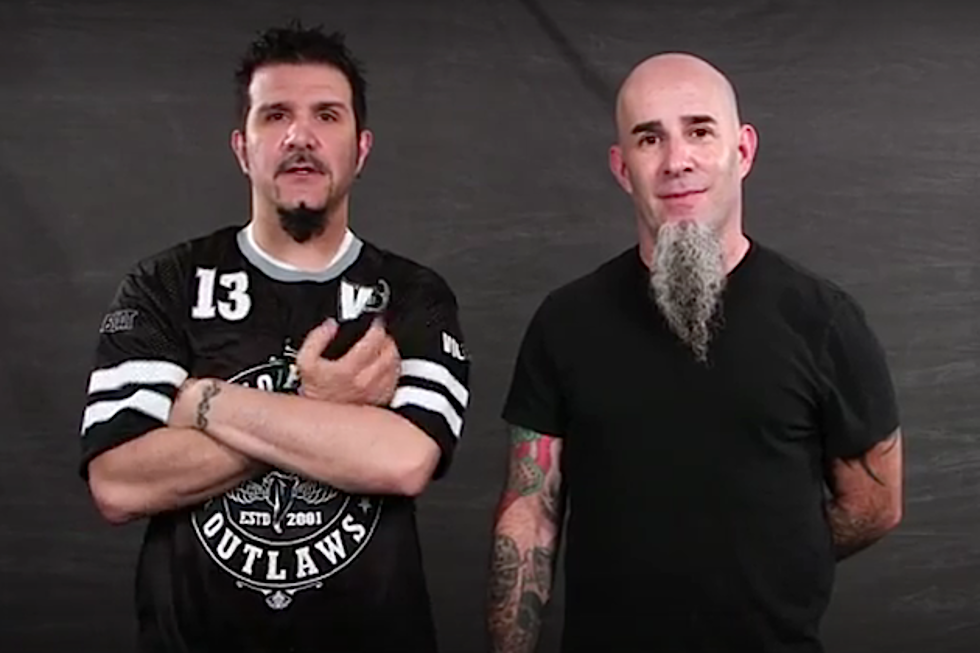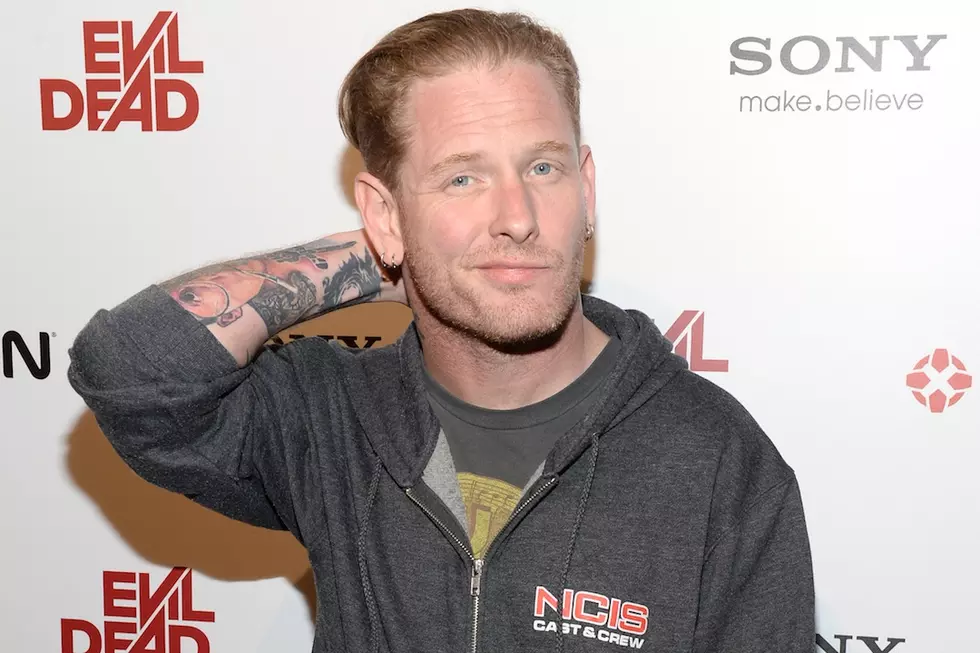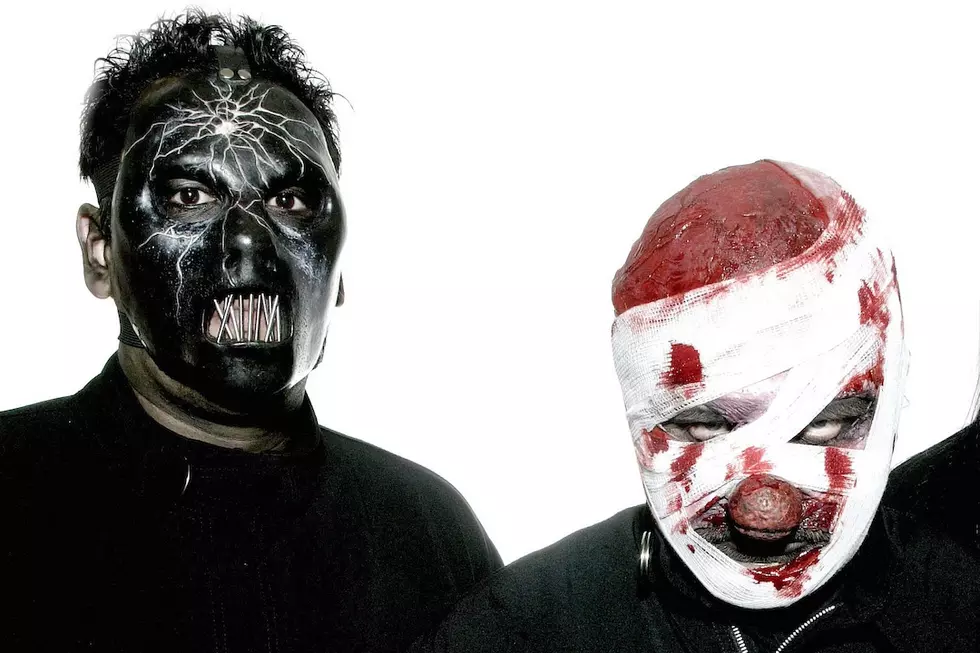
‘Power Chord’ Book: How a Regular Joe Went on a Quest to Meet His Childhood Guitar Heroes
In his new book, Power Chord: One Man's Ear-Splitting Quest to Find His Guitar Heroes (out now), McKenzie shares his stories of the cross-country journeys that it took to make his rock 'n' roll dream a reality.
A native of Kentucky, McKenzie has crafted the kind of book older Noisecreep readers (over 35 years old) will absolutely fall in love with. His stories and interviews come from a completely pure place -- there isn't a trace of record label influenced hype to be found in Power Chord.
Noisecreep recently chatted with McKenzie and got the story behind the book. Oh yeah, as a bonus, he sent us a few copies to give away too! Read on for details on how to enter.
How does one from rural Kentucky get so heavily into hard rock music and guitar? Was there a rock radio station that turned you onto music as a kid?
No one knows how KISS entered my consciousness. I don't remember and my parents don't recall. It just seems like they were always a part of life. So I honestly don't know how I became so obsessed with that particular band. Later, in the early to mid-eighties, I was introduced to Motley Crue Ratt, and bands like that by a friend who was a couple of years older. He drove a '64 Mustang and I remember listening to the Ozzy Osbourne / Randy Rhoads tape repeatedly as we rode around town looking for girls. The most influential radio station in my childhood was 98 Rock Double Q in Lexington, Kentucky.
You're a software project manager and also a freelance music journalist, but how did you end up with a book deal for Power Chord? Did you have the concept for the book for a long time?
I have a master's degree with an emphasis in creative writing, so literature and publishing have always been in the back of my head, even as I held a day job in various industries. When I started brainstorming Power Chord, I wanted to honor and pay respect to the musicians who made such a difference in my life. I was sick of hairspray and spandex jokes. I was fed up with "Those guys should just give it up" comments on blogs and websites. If a guy still treks around the country making music, whether it's to fifty people or fifty thousand, that's a sign of dedication and determination. So I wanted to somehow honor these musicians while also documenting my journey as a fan. That intent led to whole agent-proposal-submission process of the publishing industry. I've been blessed to have really supportive people involved with Power Chord.
How did you go about getting in touch with the guitarists in the book?
By any means necessary. Since I was just a glorified fan, without the backing of a major magazine or network, it was difficult getting musicians to talk to me. They -- understandably -- had other things to do than talk to someone who was (as a friend described it) basically a groupie without boobs. It got a bit stalkerish, the efforts I was going to in order to locate the guitar heroes. An overworked clerk in the Rutherford County, Tenn. police department was pretty frustrated by my frequent inquiries about the 2011 arrest of Vinnie Vincent as I tried to reach him. That's just one example.
Watch Vinnie Vincent Invasion's 'Love Kills' Video
Did you have anyone on your list that you just couldn't land in time for the book?
I used a pretty expansive definition of the guitar hero label when writing Power Chord. If -- at any point in my childhood -- I had imagined that I was the guitar player rocking the leads and riffs blasting out of my stereo, then that qualified as a guitar hero in my book. So there are tons of people I still need to reach. I met Mick Mars of Motley Crue briefly, but didn't get to interview him. That's someone I would love to chat with. Michael Schenker and Yngwie Malmsteen are two others. And Vinnie Vincent, as controversial as he is in the KISS story, is still a great story that I'd love to hear.
As fans, we're lucky there are so many great musicians. Once you start making a list of favorite and interesting musicians, it gets incredibly long incredibly quickly.
Do you have any funny stories you can share with us about the making of the book?
I took the majority of photos in Power Chord and on the book's Facebook page. And I quickly learned that concert photography is really, really challenging. The shadows, the dark stages, the strobe lights, the musician movement. The masters like Ross Halfin make it look easy and I was under no impression that I would get a single shot even remotely as good as that. But I was still shocked at just how badly I sucked at taking pictures.
At these big festivals, I kept bumping into professional shutterbugs in the pit at the foot of the stage. They all had these great war stories of shooting Blue Oyster Cult in '78 or Ted Nugent in '77 or whatever. And they all had cameras full of candid photos of women going nuts, more often than not topless, in the audience. I couldn't seem to break into the photographer fraternity.
I didn't want to reveal my amateur photographer status but my shots were atrocious. So one sweltering summer day, while the pros all stuck to the shade of the media tent, I wandered the sun-drenched arena taking photos of women in bikinis. I went to the media tent and said, "Did y'all see the blonde in Section 101?" and showed the photo on my camera. And the Red Sea of photographic acceptance parted. Suddenly, I was best friends with all these guys as we clicked through picture after picture.
One hardcore photog wore an Army boonie hat, a white bandana soaked in ice water wrapped around his neck, shorts, and Timberland boots. He had hung towels in the windows of his car to black it out and he would retreat there in between sets, blasting the air conditioning and taking a nap. I followed him into the parking lot, explained that I didn't know what I was doing, and he said, "Gimme your camera." He punched a series of buttons, entered some codes, and said, "Here. Try that tonight."
That evening turned out to produce some of the best concert photos I ever took.

Besides their obvious love for music and their instrument, what other trait did you learn your guitar heroes have in common?
These musicians have a dedication and work ethic that gets overwhelmed by the partying, sex, and drugs image. No matter how much fun they might have had, there was still an astronomical amount of work, effort, and sweat. And most of them had no back up plan. It was success or bust. Several guys looked at me like I was crazy when I asked, "What would you have done if you didn't make it?" They just couldn't conceive of that. And that singular focus, that dedication, is something that most 'normal' people don't have. That's what I wanted to document in Power Chord.

Power Chord: One Man's Ear-Splitting Quest to Find His Guitar Heroes is out now and available for sale on Amazon. Noisecreep has 3 copies of the book to give away. We'll give a copy of the book to the first 3 people who let us know who their guitar hero is via Twitter.
Here is how the tweet should be formatted:
Hey @Noisecreep - my guitar hero is (ENTER NAME HERE) #powerchordbook
More From Noisecreep

